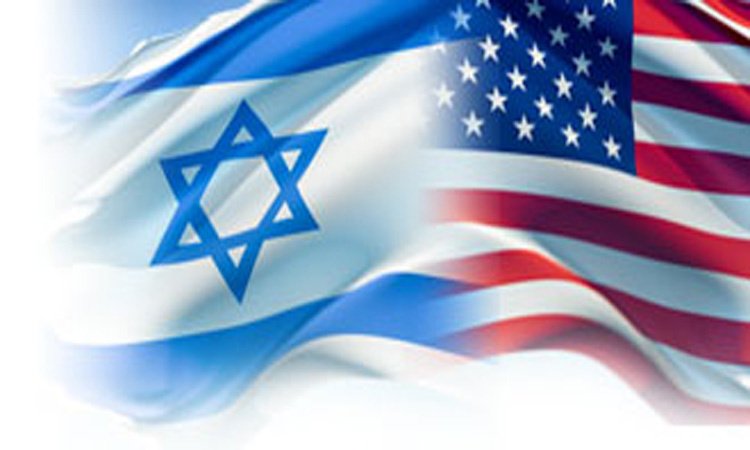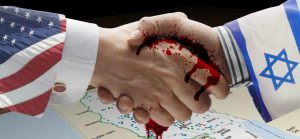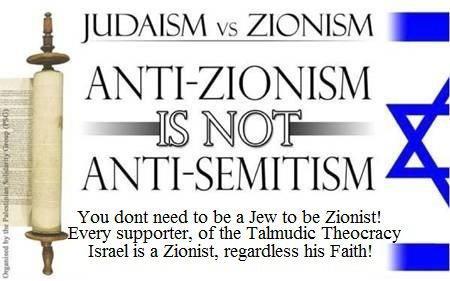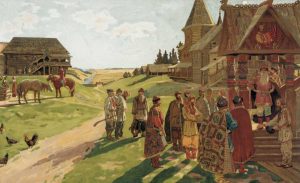
Views: 2671
It is now fully five years since the greatest upheavals in the modern history of the Arab World started in Tunis. Always impressed by the latest events, we tend to forget the deep roots of the current violent struggle. But unless we confront the causes, there is little chance that the symptoms will be healed.
(A partial version of this article in Spanish was published earlier in Free Haifa)
The wave of refugees that has reached Europe and the terror attacks in Paris reminded many people in Europe and beyond of the crisis in our region – but at the same time led them to forget that the main victims of this crisis are the people of the region themselves.
Divide and Rule
 For many centuries the people of the Middle East were not really free. They could not manage their own economies and politics as they would like.
For many centuries the people of the Middle East were not really free. They could not manage their own economies and politics as they would like.
After the Ottoman Empire was destroyed in the First World War, the European powers were quick to grab control of the region. Britain and France divided the region that expands from Turkey to the Indian Ocean between themselves in the secret Sykes-Picot agreement of 1916.
In order to ensure their control of the region, the imperialist powers used the well-tried policy of “divide and rule”. In many regions of the Middle East they supported minorities and gave them privileges over the majority, knowing that the minority would always be dependent on external powers to maintain its influence and control. In other areas they gave control to local families and made them kings or emirs, concentrating power in the hands of small elites.
- They gave Palestine to the Zionist movement to build a state for Jewish immigrants at the expense of the local Arab population.
- They built a sectarian state in Lebanon with the Christians at the top of the hierarchy.
- They granted Sunni Islam a privileged position in Iraq.
- They created the kingdom of Jordan and bestowed it on the Hashemite family from the Arab peninsula, which relies on and secures privileges for the Bedouin minority.
Syria comprised what was left over after the rest of the Arab East was divided between imperialist clients. It went through a period of instability, until it also came under the rule of a dictatorship based on the Alawite minority.
The Political Economy of Oil
The economy of the Middle East is mostly characterized by its dependence on oil as the main export product. Oil is a very political product, as it is easy to control and to monopolize. Even in many developed countries, oil taxation is an important source of government income. In our region, oil is the main export product and the main source of revenue for many governments.
An oil-based economy differs from one based on agriculture or industry. Primitive agriculture requires a large workforce. Developed industry requires educated workers. In normal economies the prosperity of the government or the elite is to a degree dependent on the well-being and cooperation of the masses and on some level of peace.
Oil requires a very small workforce to extract. The key to controlling its riches is sovereignty, or control of the state apparatus. The masses are not useful in this process. The rulers regard their people as unwanted extra mouths: you have to feed them and they may complain. In addition the price of oil tends to soar at times of war and insecurity and to slump at times of peace.
The interest of the imperialist powers is not only to secure the flow of oil to their economies. They also gain much of the proceedings through ownership of the fields themselves or of the shipping, processing and distribution facilities. It is also in the interest of the western economies that the oil wealth will not be invested in the development of the local economy or the wellbeing of the local population. Trillions of oil dollars, which were accumulated by the local rulers, are kept in western banks or investment funds and constitute a mainstay of the western economies.
Another way that the oil money is going back to the western powers is through selling weapons to the local regimes. In the arms industry profits are very high. A few western powers still maintain the technological superiority to control the markets. The security and political alliance with the top world powers is also a safety belt for the local rulers against any demand for reform from their wretched people.
The division of the Arab region between small artificial states helps to prevent the utilization of local resource to develop the local economy. Generally speaking – the oil belongs to some states while the hungry people live in other states. One special example for this policy was the creation of the state of Kuwait. It was an Iraqi oil field that was separated from Iraq by the British and given by them in 1961 to the Sabah family to rule.
The destructive role of Zionism
The Zionist colonization of Palestine was designed from its beginnings to serve the imperialist powers (initially Britain, later the US) as a bulwark against Arab independence. The Palestinians were the immediate victims

Ethnic Cleansing in the Galilee 1948
of Zionism, as 78% of Palestine was occupied by Israel in 1948 and most of the population was expelled in the ensuing Ethnic Cleansing.
The regional role of Zionism was first emphasized in the “Tripartite Aggression” of 1956, when Israel spread-headed a joint attack with Britain and France against Egypt over the nationalization of the Suez Canal.
In the 1967 war Israel succeeded not only to complete its occupation of Palestine but also to take Sinai from Egypt and the Golan Heights from Syria. One dangerous consequence of that war was the decision of the Egyptian leadership, led by Anwar Sadat, to change course and “sell-out” Egypt economically and politically to the US, in return for regaining formal control of Sinai. In Syria the sense of vulnerability in face of the Zionist aggression was an important factor behind the right-wing coup that brought the Assad dynasty to power. This pattern was consolidated into a comprehensive US strategy for the Middle East: Let Israel beat the Arabs and later hold Israel back in return for Arab political concessions to US interests.
To enable this mechanism, it was set in official agreements that the US should guarantee Israeli military superiority over any coalition of regional countries. This was possible when the Arab armies were mostly composed of illiterate peasants led by corrupt officers. But to keep this promise of military superiority of a small settler state with a few million people (currently 6 million) over states representing hundreds of millions Arabs requires putting a brake over the development of the whole region.
After the 1979 Iranian revolution toppled the US-sponsored dictatorship of the Shah, the US encouraged their then-client Iraq’s president Saddam Hussein to attack Iran. At the same time, Israel supplied weapons to the Iranians – at the highest days of the Islamic revolution – with the clear goal to prolong the conflict and increase the destruction on both sides. In the war that lasted from 1980 till 1988 hundreds of thousands were killed on each side and the suffering and destruction were colossal.
In the aftermath of this war, Iraq became a main target of the US-Israeli policy of containment, utilizing the excuse of Iraq’s invasion of Kuwait. Iraq was a rare case among the Arab states where Oil and Population met in one state – so it could become a center of economic and military development. This led to 13 years of intense sanctions on Iraq, including systematic prevention of food and medicine, which led to the death of hundreds of thousands of Iraqi children and many more adults. Not satisfied with this creeping genocide, the US, with active prodding from the Zionist lobby, occupied Iraq in 2003 and dismantled the foundations of the Iraqi state.
Even as Israel is not as useful tool for imperialism as it used to be, the commitment of the Western powers to preserve its racist system comes at a high price for the region as a whole. When, in 2006, there was a rare attempt to hold semi-democratic elections in the 1967-occupied Palestinian territories of the West Bank and Gaza, the Palestinians gave clear majority to Islamic Hamas, rejecting the corrupt rule of Fatah that was oppressing Palestinians at the service of the occupation. The whole “international community” hurried to sanction the Palestinians for not showing more sympathy with their occupiers. The siege of Gaza, reinforced regularly by massacres, was designed to be a lesson in democracy and its outcomes for the whole region.
Israel very much wanted a repetition of the war on Iraq with another, bigger, imperialist war against Iran. This was too much for the US to swallow, as it already paid a very high toll for the Iraqi adventure, not least some 1 trillion dollar of expenses that could revive the crippled US economy. Now, as Syria is burning and bleeding, Israel doesn’t hide its satisfaction, as another “potential danger” is neutralized.
The rise of political Islam
In spite of all the above mentioned problems, many analysts still describe the current conflict as a result of the rise of “Islamic Extremism”. As if the people of the Middle East are not revolting against their oppression. As if all was well until unexplained crazy mood of extremism took hold.
This is the most superstitious and out-of-context explanation of political events.
Islam, as any other religion, and as many other ideologies like “liberalism” and “socialism”, all proposing a methodology for organizing society, can be used (or misused) to all sorts of political purposes: Justifying oppressive regimes, instigating war and genocide or struggles against oppression and discrimination.
In the 1980s the US used and paid for Islamic Jihadists to fight the Soviet army in Afghanistan. Almost all Arab regimes use the Islamic religion, by one way or another, to legitimize the rule of elites of different types, most of them serving foreign imperialism more than anybody else. Not long ago it was official policy of Saudi Arabia and Mubarak’s Egypt, orchestrated by the US, to re-invent and inflame the Sunni-Shia conflict in order to distract Arab public opinion by describing Iran as “the real danger” – sparing Israel, the US and local “Sunni” Tyrants.
As all kinds of political expression are oppressed all over the region, it is just natural that the main form of mass organization that can’t be criminalized, practicing religion, becomes a central conveyer of the aspirations of the masses. But when Islam is used as an ideological or organizational framework for struggle against oppression it suddenly loses all legitimacy and described as a danger.
The dominance of Islamic movements in the Middle East is not only a result of political oppression. Nationalist and socialist movements were at the center of Arab politics for decades, but they lost credibility between the masses due to their own mistakes and shortcomings. At the same time Islamic movements, like Hezbollah, Hamas, the Muslim Brothers in Egypt and the Sadrists in Iraq, kept the right balance between grassroots work to care for the daily needs of the masses and political struggle against occupation and tyranny. They implemented the methods taught by Lenin and Mao on how to build a movement effectively. Those Islamic movements that were connected to the masses and opposed local rulers (until Hezbollah took sides with Assad) were also more ready to support democracy and form coalitions with other parties and people from different religions.
What actually pushes masses of people to look for extreme solutions is not “ideology” but extremely harsh conditions. The Sunni communities in Iraq engaged in peaceful protest throughout 2013 against discrimination and oppression by the Shia-led Maliki government that was supported by both US and Iran. It was only after the government rejected any political solution, preferring to send the army to besiege their cities and bomb them, that the local militias organized with the so-called “Islamic State” to throw out the army. Only the shock caused by the victory of the Islamic State in Mosul forced the US and Iran to push aside Maliki and try to sponsor a less sectarian Iraqi government.
In similar conditions, years of bombing of their cities by the Assad regime pushed some Syrians into the arms of the Islamic State. The massacre of more than 200,000 Syrians was not regarded by “the international community” as an emergency until foreigners started to be in danger. It should also be said that the brave Kurdish and Arab opposition in Syria started to fight against the extremism of the so-called Islamic State long before it became an international affair.
Other regimes are likewise driving their people towards extremism. Egypt’s dictator Al-Sisi is doing it in Sinai. In Libya it is the policy of the army led by retired general and CIA agent Haftar, supported by the “internationally recognized” government in Tobruk. The method is well known: Bomb the people instead of listening to them. The reason is also familiar: When you’re the only “defender of the country” against “extremists” you will get plenty support and nobody will dare to question your crimes.
No mechanism for change
The Arab countries, with more than 300 million inhabitants, are now the most politically retarded and oppressive region in the world. There are several reasons for this.
First, it is the region where imperialism is making most money. When the US was forced to withdraw from Vietnam (in 1975) they declared the Middle East to be their next red line: Here they will fight rather than giving up control to nationalist or socialist movements.
 The traditional support by western powers for Israel is another reason why they see any democratic reform in the region as a threat. Arab democracies which would need to take public opinion into consideration might well give more support to the Palestinians.
The traditional support by western powers for Israel is another reason why they see any democratic reform in the region as a threat. Arab democracies which would need to take public opinion into consideration might well give more support to the Palestinians.
Since the beginning of the 70s and the dramatic rise in the price of oil, and until the beginning of the Arab Spring in 2011, there was no political change in any country in the region. The ruling elites had enough resources to buy or crash any opposition.
While there were significant steps toward democratization in every other region in the world, in the Arab world the ruling elites have only became more oppressive.
A general rehearsal for things to come was played in Algeria in 1991. After the Islamists won the first round of the elections, the army took control in a coup and outlawed the Islamists. In the civil war that emerged some 200,000 people died. The military government was fully supported by the western powers all along.
The accumulation of contradictions all over the region inevitably led to a much wider wave of protests and upheavals – the Arab spring.
For forward looking analysis you can read in Free Haifa: The Arab Spring, five years on, is here to stay and win.

Originally published on 2015-12-19
Source: Free Haifa
Origins of images: Facebook, Twitter, Wikimedia, Wikipedia, Flickr, Google, Imageinjection, Public Domain & Pinterest.
Read our Disclaimer/Legal Statement!
Donate to Support Us
We would like to ask you to consider a small donation to help our team keep working. We accept no advertising and rely only on you, our readers, to keep us digging the truth on history, global politics and international relations.
FOLLOW US ON OUR SOCIAL PLATFORMS







